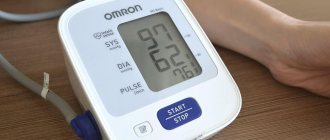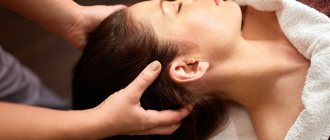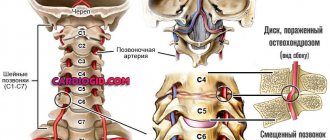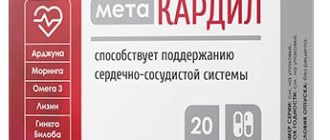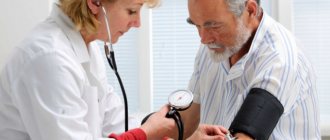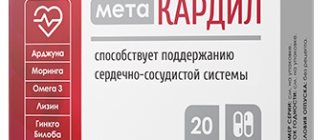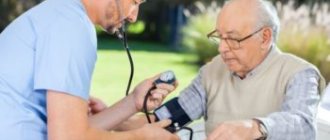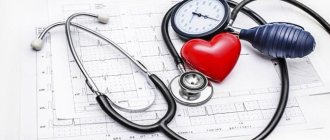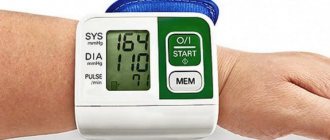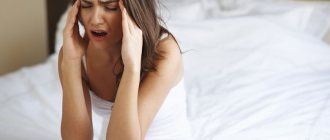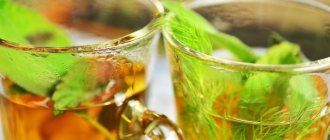Blood pressure norms in the elderly
As you age, blood pressure standards become higher. For people aged 50 years and older, the normal range is 130/80. For an elderly person, the indicators are 140/80 with slight upward fluctuations, for example, 142/85. These are approximate figures that you need to focus on when checking pressure.
Blood pressure is considered low if it is 100/60 in men and 95/65 in women or lower. Any indicators lower than 20% for the patient’s individual situation are also considered reduced. Low performance in mature and elderly people can only be considered normal if they are athletes.
Low blood pressure: what are the causes?
Primary hypotension (otherwise: physiological, pathological) occurs due to hereditary predisposition. This is a normal variant that does not occur in an elderly person. Primary hypotension is more typical for people aged 18-42 years. In the future, the numbers increase, and even hypertension may appear. Hypotension can be caused by stress, overload and chronic fatigue.
Secondary hypotension can develop due to other pathologies: diabetes mellitus, decreased functionality of the thyroid gland, problems with the adrenal glands, osteochondrosis. Often, along with hypotension, an elderly person has cardiovascular problems, anemia, infections and stomach ulcers.
Low rates also appear in the following situations:
- Long-term use of certain medications;
- Strict diet, lack of microelements and vitamins;
- Large blood losses, injuries and poisoning can cause sudden drops in blood pressure. In these situations, assistance must be provided quickly.
Symptoms of hypotension
A person is ready for physiological hypotension, so strong discomfort does not bother him.
Secondary hypotension is characterized by:
- Dizziness,
- Weakness, drowsiness and lethargy,
- Heavy sweating
- Pallor of the skin,
- Fainting.
The following conditions may occur:
- Pain in the frontal and temporal areas;
- Unhealthy heart rhythm;
- Feeling of lack of air;
- Darkness in the eyes with sudden movements;
- Decreased performance;
- Apathy;
- Increased discomfort with changes in weather.
How to increase blood pressure: methods and means
According to specialists at the Dacha boarding house in Murino, hypotension is often a sign of a disease, so first of all you need to find the root cause. If the cause is internal pathology, the indicators will not decrease until the problem organ is cured.
Medicines
Antihypotonic drugs will quickly raise blood pressure at home: caffeine, citramon, mezaton, dobutamine, papazole, etc. Before taking a pill, you need to make sure that a person’s blood pressure is low, so you should definitely check it. This is necessary because high blood pressure causes similar symptoms. The attending physician will prescribe suitable tablets.
If a person has chronic hypotension, the problem must be solved comprehensively. The patient needs to adjust his lifestyle, change his diet, add suitable physical activity, and, if necessary, consult a psychotherapist. Complex treatment will help raise blood pressure. It is prescribed by a specialist.
Nutrition for people with low blood pressure
For a person with hypotension, these dietary recommendations will help raise low blood pressure:
- Eat often and in small portions. Number of meals – 4-6 per day.
- Fluid consumption is at least 1.5 liters per day.
- A hearty breakfast is useful - it will help bring your levels back to normal, which are often low in the morning. Include sandwiches with salted cheese, butter and a cup of black tea or coffee in your breakfast.
- Between main meals, you can have healthy snacks if you feel hungry. You can snack on nuts, apples, yogurt, etc.
- The diet should consist of foods rich in nutrients and vitamins.
- You should include salty foods in your diet in moderation: they will help raise your blood pressure.
- If you have diabetes, you need to constantly monitor your sugar levels.
Foods that increase blood pressure
For chronic hypotension, it is useful to include foods from this list in your diet. You can easily and safely increase and maintain blood pressure at home using them.
- Strong tea or coffee. Caffeine will dilate blood vessels. In addition to increasing blood pressure, the person will be cheerful and in good shape. But this method is suitable for those who rarely drink coffee. Coffee regulars become addicted to caffeine, and the desired effect will not occur.
- Cinnamon with honey. Half a teaspoon of cinnamon should be dissolved in a glass of boiling water and add a little honey. The drink is infused for half an hour and then drunk.
- Seafood: add mussels, red caviar, shrimp to the menu.
- If your blood pressure drops sharply, you can eat something salty: cucumbers, nuts, etc.
- Glucose: you can eat a piece of refined sugar.
- Cognac and red wine can increase blood pressure. You can drink no more than 50 g per day if you receive permission from your doctor and do not abuse it.
- Low blood pressure is often caused by a lack of iron. If this is the reason, it is useful to add liver, pomegranate, green apples, and buckwheat to your diet. You can also take iron-containing foods.
- Vegetarianism and lack of meat have a bad effect on blood pressure. If a person refuses to eat meat, he needs to make up for this deficiency with eggs and dairy products.
Useful Herbal Remedies
These remedies will help normalize blood pressure at home:
- Take ginseng tincture for a month. Dosage: 15 drops three times a day before meals.
- Birch juice. One glass of juice a day is enough.
- Aloe juice. Take 1 tsp. twice a day.
- Juniper berries. Start by taking 4 berries, increasing the number to 15.
- Bay leaf. Grind the bay leaf into small pieces and place under the tongue. You need to suck it for a few minutes, then spit it out.
- Valerian tincture will help raise systolic blood pressure. To raise diastolic blood pressure, you can take motherwort.
- Half a glass of beet juice a day will improve your performance and also cleanse your blood.
- Eleutherococcus tincture. It should be taken three times a day, 20-30 drops. The tincture is mixed with water and drunk 15 minutes before the start of a meal. The last dose takes place no later than four hours before bedtime. The entire treatment lasts up to a month; if necessary, it can be repeated after 2-3 weeks.
- Schisandra tincture. Drink 20-25 drops diluted in water twice a day in the first half of the day before meals. Drink for three weeks, then take a break of two weeks and you can repeat.
Physiotherapy
Massage of the whole body, as well as arms and legs, and acupressure on individual places helps well. Physiotherapy also includes electrophoresis with drugs, galvanization, ultraviolet irradiation, decimeter wave therapy, balneotherapy, and cryotherapy.
List of medicines for high blood pressure
There are many reasons that can cause a decrease in blood pressure (blood pressure). These may include chronic fatigue, stressful situations, as well as hereditary diseases. It is worth noting that in older people, hypotension is much less common than hypertension.
There are no tablets designed specifically to increase blood pressure. Most of the drugs recommended for hypotension have an increase in blood pressure as a side effect, so they should be taken only after consultation with the treating doctor.
Many people with low blood pressure prefer to drink strong coffee - the drink is a natural stimulant - or take caffeine-based medications. But in case of overdose, the substance can cause the development of arrhythmia and breathing problems.
Before starting to take any drug, you must consult with your doctor. Most often, patients are prescribed the following tablets for low blood pressure:
- Caffeine sodium benzoate;
- Cordiamine;
- Etimizole;
- Ephedrine;
- Citramon;
- Epinephrine;
- Midodrine.
Caffeine sodium benzoate
A widely known drug intended to raise low blood pressure. Belongs to the group of psychostimulants. Caffeine, acting as an active ingredient, promotes irritation of the vasomotor center of the brain. Due to its direct effect on the condition of blood vessels (the substance causes their narrowing), it helps to quickly increase blood pressure.
Cordiamine
Cordiamine belongs to the category of analeptics, has a stimulating effect on the central nervous system and chemoreceptors. By irritating the vasomotor center, the drug increases peripheral vascular resistance, which leads to normalization of blood pressure. Cordiamine helps increase blood pressure levels in a short time. After taking the tablet, blood pressure stabilizes within 10 minutes.
Etimizole
Etimizole belongs to the group of analeptics. Against the background of its use, the respiratory center is excited and a general vasoconstrictor effect develops. As a result, a person's respiratory rate, ventilation volume, and blood pressure increase.
Ephedrine
Ephedrine is a potent medication that helps quickly increase blood pressure in emergency situations.
Important! Ephedrine is a prescription drug.
Exceeding recommended dosages can cause deterioration of the condition and the development of complications such as:
- overexcitation of the nervous system;
- attacks of nausea and vomiting;
- sleep disorders, expressed in the development of insomnia;
- uncontrolled hypertension.
Citramon
Citramon (another name for the drug is Askofen) is a well-known drug that can be purchased at any pharmacy without a prescription. The product contains three active ingredients - caffeine, aspirin and paracetamol.
Epinephrine
Epinephrine causes a narrowing of the lumen of the blood vessels, which ultimately leads to an increase in blood pressure. The drug is indicated in the following cases, accompanied by a decrease in blood pressure:
- drug intoxication;
- renal failure;
- postoperative shock.
Its use should be avoided during pregnancy, confirmed hypertension, cardiomyopathy and supraventricular tachyarrhythmia.
Midodrine
Midodrine belongs to the group of alpha-adrenergic agonists. The drug is used in the development of a hypertensive crisis, fainting against the background of a sharp drop in blood pressure. An increase in the latter occurs against the background of rapid narrowing of the lumens of blood vessels.
The medicine is contraindicated for use in the following cases:
- increased activity of the thyroid gland;
- disorders of the kidneys;
- hypertonic disease;
- pheochromocytoma;
- heart failure.
Recommendations for hypotensive patients
In order to quickly bring blood pressure back to normal, hypotensive patients must follow useful rules.
- Lead an active and healthy lifestyle. Any suitable physical activity is encouraged: Nordic walking, running, swimming, moderate work in the garden, etc.
- Get out into the fresh air often and go for daily walks.
- Get enough sleep. Hypotonic people are recommended to sleep longer than healthy people. 9 hours daily at least. This will help you feel good in the morning and keep your levels normal.
- Avoid severe stressful situations. If necessary, contact a psychotherapist.
- Stick to a healthy and healthy diet for hypotension. You need to have a hearty breakfast. You cannot exclude salty and fatty foods from your diet.
- Don't overwork or overwork. Work should be moderate.
- Drink plenty of fluids.
- Maintain immunity at a high level, increase it if necessary.
- Immediately treat emerging infections and viral diseases.
- To refuse from bad habits.
These recommendations were provided to us by a nursing home in the Leningrad region; they will help maintain healthy blood pressure at home, as well as the condition of the whole body.
Preparations with herbal ingredients
And there is also a group of drugs that increase blood pressure, based on components of plant origin. What can you take from this group of medications? The list of medications is quite extensive and includes:
- Chinese lemongrass;
- Eleutherococcus;
- lure tincture;
- ginseng tincture;
- tincture of radiola rosea;
- pantocrine
Adaptogens are plant components that are used to increase blood pressure.
Chinese lemongrass
The product is part of a group of drugs that have tonic and adaptogenic properties. Its use helps to increase blood pressure. It is forbidden to drink the tincture if the following conditions are diagnosed:
- acute period of any disease;
- hypertonic disease;
- pathologies of the heart, blood vessels, liver;
- disturbances in the functioning of the central nervous system;
- epilepsy, tendency to seizures;
- traumatic brain injuries;
- severe overexcitation of the central nervous system, accompanied by insomnia;
- mental disorders;
- allergy to the components of the product.
The tincture must be taken in a course. Its duration is two weeks.
Eleutherococcus
In the treatment of hypotension, a liquid infusion from the roots of the plant is used. The plant is widely known for its restorative, tonic and adaptogenic effect. The product improves mental abilities, performance, memory, vision, and also enhances immune defense and overall tone of the body.
The tincture can be used for both medicinal and preventive purposes. In the latter case, you need to drink 20 drops twice a day. If it is necessary to carry out a course of treatment, the dosage is increased to 30 drops, and the frequency of administration is 3 times a day.
Important! The tincture should be taken after meals.
The duration of treatment is 15–30 days. Then you need to take a two-week break and repeat the dose if necessary. If the duration of therapy is more than two calendar months, then the development of side effects is possible.
Treatment of hypotension
These include increased irritability, poor performance, increased blood pressure, sleep disturbances, increased anxiety, impaired digestion, and weight gain.
Eleutherococcus tincture should not be taken in the evening. Otherwise, the development of insomnia is possible. And also, hypertensive patients should avoid using the drug, since it helps to increase blood pressure.
Signs of overdose: disturbances in the digestive system, insomnia, poor performance, allergic reaction. If such conditions occur, the drug should be stopped. If necessary, symptomatic therapy can be carried out.
Tincture of enticement
Tincture based on bait is used not only in folk treatment. It is also recognized by traditional medicine. The drug has general strengthening and adaptogenic properties. Course use of the drug helps to increase blood pressure and overall body tone, restore reserves of vitamins and microelements.
The main indications for use of the tincture are:
- asthenic conditions;
- hypotension;
- vegetative-vascular dystonia.
It is necessary to drink the drug in the first half of the day, as it has a powerful tonic effect. The latest hour before which you can drink the tincture is 6 pm. The total duration of the course is a full calendar month.
The daily dosage is calculated individually and depends on the desired result.
Ginseng tincture
What else can you drink if you have hypotension? Tincture based on ginseng root has proven itself well. It has a general tonic effect and is recommended for use in cases of hypotension, asthenia, neurasthenia, etc. The composition should be taken three times a day, half an hour before meals. Single dosage – 40 drops.
During treatment, the development of the following side symptoms is possible:
- headache;
- attacks of nausea, vomiting;
- sleep disturbances due to a strong tonic effect;
- increased nervousness;
- tachycardia;
- diarrhea;
- allergic reaction;
- nervous overexcitation;
- nosebleeds.
The use of the tincture should be avoided in childhood and during the period of bearing/breastfeeding a child.
Rhodiola rosea tincture
Rhodiola rosea has powerful adaptogenic properties. Take the product 30 minutes before meals twice a day. A single dose is 20 drops. The duration of the course is a full calendar month.
Pantocrine
The drug is a biological stimulant, the basis of which is the extract of forest deer antlers. Dosage regimen: 1 tablet per day. The duration of the course is two weeks.
Herbal-based drugs that raise blood pressure cause much less harm to the body and central nervous system than drugs of chemical origin. In addition, they can be taken exclusively for preventive purposes.
Hypotension is no less serious a disease than hypertension and also requires treatment. But before starting to take any medications, it is necessary to find out the cause of the pathology by contacting a specialized specialist.
conclusions
Low blood pressure can accompany a person from a young age, or may appear later as one of the symptoms of internal problems. In any case, an elderly person should not let a situation with low blood pressure take its course: at this age, such an attitude is fraught with problems.
If you adhere to a healthy lifestyle and special advice for hypotensive patients, there will be no health risks. Advice for hypotensive patients will be beneficial not only for low blood pressure, but also for the health of an elderly person in general.
Medicines for high blood pressure
Low blood pressure (hypotension, vegetative-vascular dystonia) is a pathological condition of the body, which is accompanied by a decrease in blood pressure. The cause of the disease is a decrease in muscle tone in the walls of the arteries. What medications increase blood pressure?
Plant adaptogens
Herbal preparations have a mild stimulating effect on the central nervous system and cardiovascular system, help fight drowsiness, physical and mental fatigue, and effectively increase blood pressure. Example of plant adaptogens:
1. Eleutherococcus senticosus extract can be taken together with ascorbic acid.
2. Herbal tinctures:
- Aralia,
- Ginseng,
- Lures,
- Schisandra,
- Rhodiola.
3. Pantocrine is a natural drug in tablet form.
4. Saparal is a medicine based on the roots of Manchurian Aralia.
5. Caffeine in tablet form.
Alpha adrenergic agonists
Drugs in this group are prescribed to patients with orthostatic disorders, hypotensive crises and fainting:
1. Mephentermine is effective for hypotension and orthostatic disorders.
2. Midodrine (Gutron, Midamin) is a medicine for increasing blood pressure that stimulates alpha-adrenergic receptors. The drug constricts blood vessels, preventing stagnation of blood in the veins. As a result, the flow of oxygen to tissues improves, and the volume of circulating blood remains at a constant level.
3. Norepinephrine (Norepinephrine) – solution for intravenous administration. It has an adrenergic stimulating effect and constricts blood vessels. Used for low blood pressure after injuries, poisoning, operations, and cardiogenic shock.
4. Phenylephrine (Mezaton, Irifrin, Vistosan) – solution for injection, acts gently, constricts arterioles. Used for vascular insufficiency and shock conditions.
Drugs to stimulate the nervous system
Drugs that stimulate the central nervous system increase blood pressure, stimulate mental and physical activity, reduce fatigue and drowsiness, increase concentration and improve memory:
1. Adrenomimetics of indirect or combined effects:
- Caffeine sodium benzoate.
2. Analeptic drugs that affect the vasomotor and respiratory centers in the brain:
- Acrinor increases cardiac output without increasing the number of heart contractions, resulting in a sustained and prolonged rise in blood pressure.
- Nicetamide (Cordiamin).
- Symptol is a mild medicine to increase blood pressure.
- Etimizole.
- Effortil (Etilephrine) – constricts blood vessels, increases the volume of circulating blood.
3. Analeptics – drugs acting at the level of the spinal cord:
- Alkaloid.
- Angiotensinamide (Hypertensin) is a drug that is administered intravenously through a dropper. Activates the release of epinephrine and aldosterone.
- Securinin.
4. Anticholinergic drugs:
- Bellaspon,
- Bellataminal is used for disorders of the vagus nerve.
Other drugs
The following drugs are also used to increase blood pressure:
- Heptamil (Heptazol, Heptanal) is a non-toxic, effective medicine in the form of tablets and solution for injection and intramuscular administration. The drug develops the tone of the cardiovascular system and stimulates coronary blood flow.
- Niketamide (Cordiamin, Cordiamid, Tonocard, Cordimid) is an analeptic drug available in the form of drops and injection solutions. Stimulates the central nervous system, stimulates the respiratory and vasomotor centers in the brain. It affects the body in two directions: central and peripheral.
- Citramon is a popular medicine for high blood pressure, containing caffeine, paracetamol and acetylsalicylic acid. The drug thins the blood and has a positive effect on blood circulation, as a result of which the body begins to receive more oxygen.
- Ephedrine is a sympathomimetic drug, available in the form of tablets, nasal drops, and injection solutions. Increases blood glucose concentration and muscle tone, stimulates the central nervous system.
Related products View all products
Aquacitramon, gran.
for oral administration 3 g No. 5 RUB 138.00
More details
Askofen-P, tab. No. 10
31,50 ₽
More details
← Previous article Medicines for lactation
Next article → Medicines for the gallbladder
